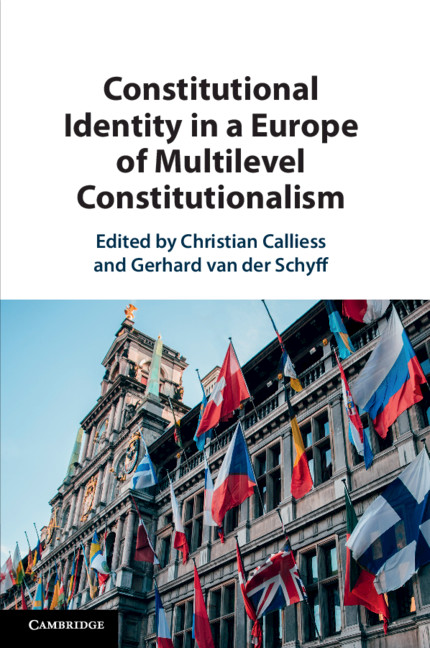European Constitutionalism the Other Way Round
The key argument of the volume is that post-1989 transformation deeply affected states and societies on both sides of the former Iron Curtain and was mutually constitutive. While post-communist Europe had to re-invent itself to be 'admitted' to the EU, the old member states and the EU changed too – less visibly, but no less profoundly. This volume examines these transformations from a new perspective, defined by scholars from post-communist Europe, who set the agenda of the volume in a series of workshops. Their colleagues from the 'West' were invited to reflect on the experience of their countries in the light of the questions and concerns defined in those workshops. The authors include scholars from a variety of backgrounds: established and young, coming from all parts of the continent and having different views on the politics of European integration. This title is also available as open access on Cambridge Core.
- A new approach to the development of and relations between 'old' and 'new' EU members
- Draws on insights from various disciplines and parts of the EU
- This title is also available as open access on Cambridge Core
Product details
December 2025Hardback
9781009604079
480 pages
229 × 152 mm
Not yet published - available from December 2025
Table of Contents
- 1. Imagining statehood and constitutionalism in Europe: introduction Jan Komárek, Birgit Aasa, Marina Bán and Michał Krajewski
- Part I. Nation States, Member States and Their Others:
- 2. Vicarious sovereignty: becoming European the Estonian way Maria Mälksoo
- 3. From federation to external constraint: Europe in the Italian constitutional imagination Marco Goldoni
- 4. Sovereignty and the misery of small eastern European Nations Hent Kalmo
- 5. Ruling Britannia Martin Loughlin
- 6. The power of concepts: from 'self-management' to 'sovereignty' in Soviet Estonia (1987–88) Juhan Saharov
- 7. European integration-ineffable aspiration or the object of concern? About the ambiguity of Europe in the Polish constitutional imaginary Aleksandra Kustra-Rogatka
- 8. The constitutionalised image of enemy in the Hungarian fundamental law Attila Antal
- Part II. Bringing Back the Past (To Serve or Understand The Present?):
- 9. Political integration through constitutional memory? Historical constitution and community building in Hungary Kálmán Pócza
- 10. The constitutional concept of the historical constitution and illiberalism: the case of Hungary Tímea Drinóczi
- 11. Estonians' European imaginaries: the Soviet and pre-Soviet legacy Epp Annus
- 12. Czechoslovakia: Remembering and forgetting the failures of a state Mary Heimann
- 13. A constitution without qualities? three narratives about Austrian constitutional law Ulrich Wagrandl
- Part III. The Varieties of Liberalism in Europe:
- 14. Rule of what law? Authoritarian pasts, liberal politics and constitutional imagination in early post-communist East Central Europe Michal Kopeček
- 15. From the facade to solid foundation? the evolution of the polish constitutional law discourse in years 1944–1989 Wojciech Zomerski
- 16. Nordic democratic exceptionality after the end of history: a neoliberalized constitutional imaginary? Johan Strang
- 17. 50 years of democratic constitutionalism in Portugal – between constitutional aspirations and the European path Mariana Canotilho
- 18. Constitutional drift – exploring the deeper roots of Polish constitutional crisis Karol Muszyński and Paweł Skuczyński
- 19. On the French constitutional imaginary: the erosion of the long-standing Republican tradition François-Xavier Millet
- 20. From legal impossibilism to the rule of law crisis: transitional justice and polish counter-constitutionalism Michał Krotoszyński.







.jpg)

